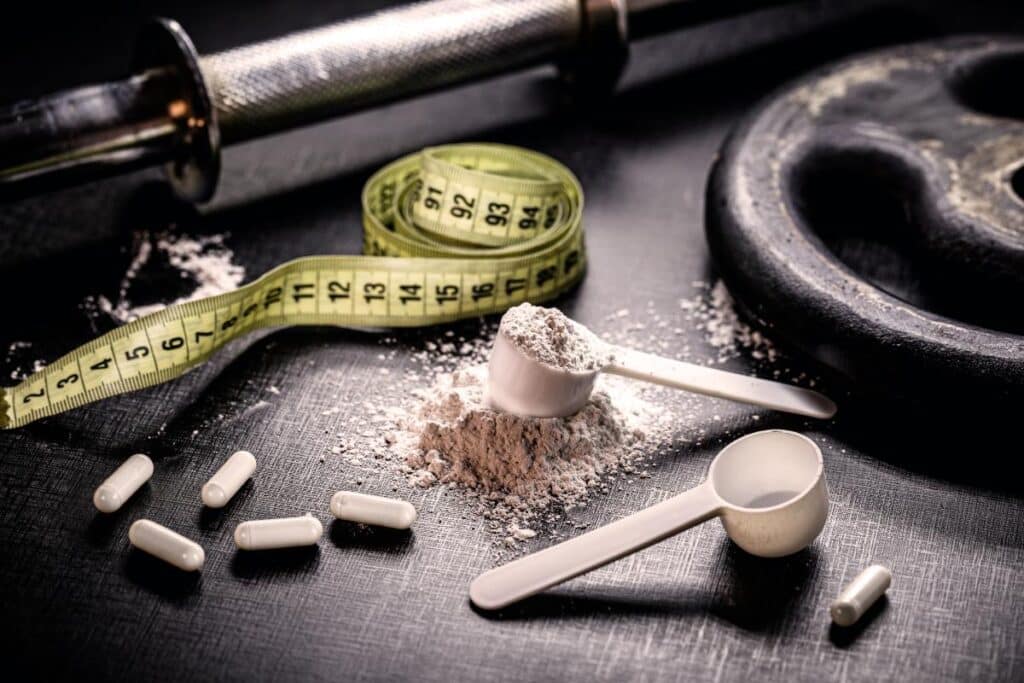Creatine is a popular dietary supplement known for its performance-enhancing and muscle-building benefits. In this article, we will explore the best creatine supplements available, providing a detailed comparison of products. Additionally, we’ll discuss the importance of creatine, backed by research, and highlight natural sources of creatine in whole foods.
Importance of Creatine
Creatine is a natural compound found in small amounts in certain foods and is synthesized by the body. It plays a crucial role in providing energy during short bursts of intense physical activity. Here’s why creatine is important:
- Enhanced Athletic Performance: Research has consistently shown that creatine supplementation can improve high-intensity, short-duration activities like weightlifting, sprinting, and jumping. Athletes often use creatine to boost their performance.
- Muscle Growth: Creatine promotes muscle growth by increasing water content in muscle cells, leading to a temporary “pumped” appearance. It also supports the body’s ability to create new muscle proteins.
- Brain Health: Emerging research suggests that creatine may have cognitive benefits. It has shown potential in improving brain function, especially in tasks that require short-term memory and processing speed.
- Health Conditions: Creatine has been studied for its potential therapeutic applications in various health conditions, including muscular dystrophy, Parkinson’s disease, and even depression.
Best Creatine Supplements: A Comparison
- Optimum Nutrition Micronized Creatine Monohydrate: This well-established brand offers pure creatine monohydrate with no added flavors or fillers. It’s highly regarded for its purity and effectiveness.
- Bulk Supplements Creatine Monohydrate: Known for its cost-effectiveness, Bulk Supplements provides pure creatine monohydrate in bulk quantities, allowing users to customize their dosage.
- Cell-Tech Creatine Monohydrate: Cell-Tech combines creatine with carbohydrates, making it an excellent choice for replenishing glycogen stores while supplementing with creatine.
- MuscleTech Platinum Creatine: This brand offers micronized creatine monohydrate, ensuring quick absorption. It’s known for its quality and has a good reputation among fitness enthusiasts.
- Jarrow Formulas Creatine Monohydrate: Jarrow Formulas provides a high-quality creatine monohydrate supplement known for its purity and effectiveness.
Natural Sources of Creatine
While creatine supplements are popular, you can also obtain creatine from whole foods:
- Red Meat: Beef and pork are among the wealthiest sources of creatine in whole foods. A 3.5-ounce serving of beef contains around 2 grams of creatine.
- Fish: Fish like herring and salmon also provide creatine. A 3.5-ounce serving of salmon contains approximately 4.5 grams of creatine.
- Poultry: Chicken and turkey contain smaller amounts of creatine than red meat and fish but can still contribute to your dietary intake.
- Vegetarian Sources: While creatine is less abundant in plant-based foods, small amounts can be found in some vegetables, such as spinach and beets.
- Dietary Supplements: Creatine supplements are an efficient way to ensure an adequate intake, especially for athletes and those with higher requirements.
Conclusion
Choosing the best creatine supplement is a personal decision based on your goals and preferences. Creatine is a valuable dietary supplement for enhancing athletic performance, promoting muscle growth, and potentially benefiting brain health.
However, consulting with a healthcare professional before starting any new supplement regimen is essential. Additionally, you can obtain creatine from whole foods like red meat, fish, and poultry, making it a versatile addition to your diet. Whether through supplementation or dietary choices, creatine can be a valuable asset in your quest for improved performance and well-being.
If you love bodybuilding, share this article on Facebook or Twitter so that others can learn more about building muscle.



